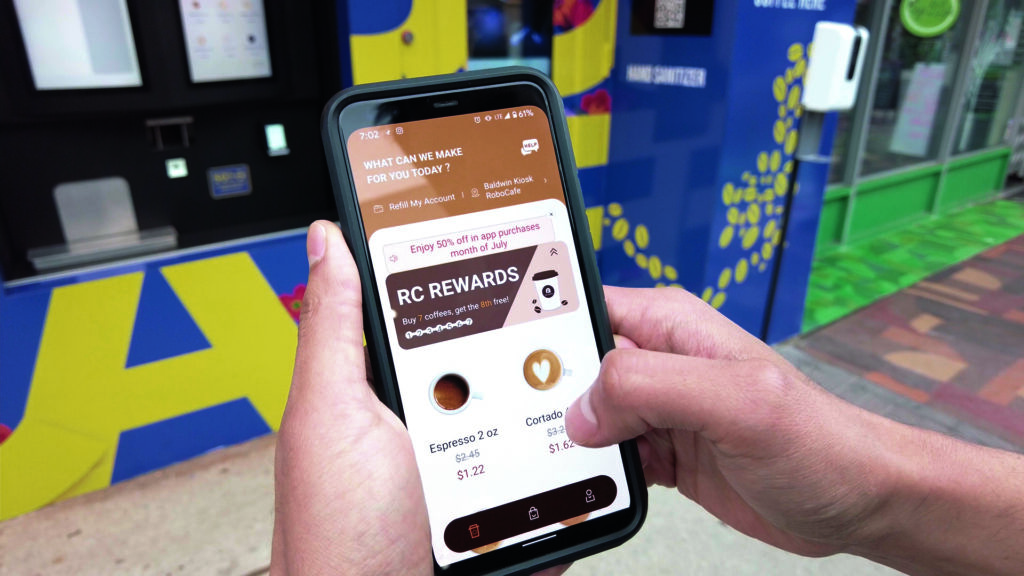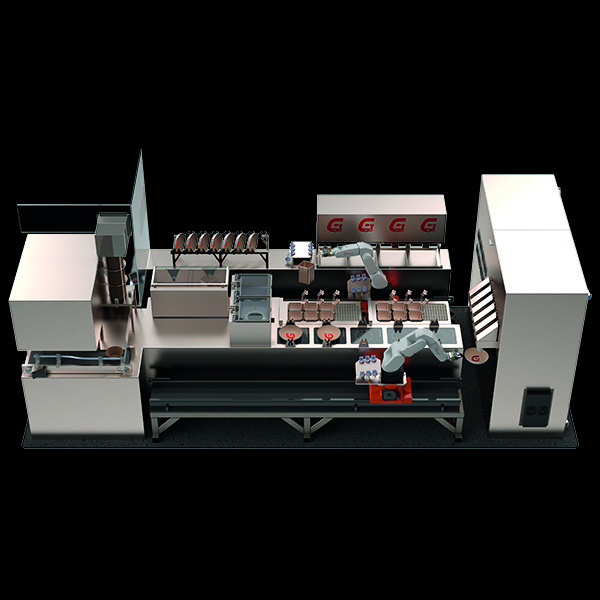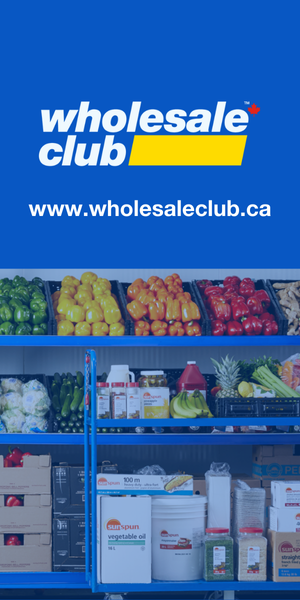Kitchen Technology
The foodservice industry is undergoing unanticipated leaps in technological adaptation during COVID-19. Innovations such as contactless payments, mobile ordering, tabletop technology and third-party delivery services were on the rise in Canada before the start of the pandemic, but adoption rates have soared dramatically since.
“Innovation is driven by the need to solve problems,” says Dana McCauley, Chief Experience Officer at the Canadian Food Innovation Network (CFIN), a newly formed organization created to stimulate connections, collaborations, innovation and investment across Canada’s food ecosystem. “Transaction-level technology, like tap, came about because everyone, both customers and retailers, wanted more security.” In other words, whatever comes next will be an answer to a specific need.
One of those needs might be automation. McCauley says automation is already happening in an invisible way. “We’re further along than we’re aware when it comes to the mechanization of foodservice.” The industry’s largest producers and distributors rely on the kind of automatic equipment that is only affordable on a large scale. “Big, industrialized kitchens come with a lot of automation. Again, that automation is for solving specific problems: in this case, efficiency and consistency.”
Consistency is important, and a highly desired goal in foodservice. A little automation can help with that. Brad Ford, General Manager of Coffee at RC Coffee, who has spent decades in the coffee business, knows this well. This past year, RC Coffee opened two Robo Cafe locations in Toronto: automatic coffee kiosks run by robot baristas. The result is nothing like the dismal vending machine coffee of your memories.
Low-touch, automated experiences are integral in foodservice during and post-pandemic.
— Dana McCauley, Chief Experience Officer at the Canadian Food Innovation Network

“From bean to drink, there’s so much that has to be done and monitored. It’s both an artisanal and technical approach.” The kiosks use Dark Horse beans, Super Traditional coffee machines, and a robot arm to deliver the drinks. Customers can choose and customize their beverages on the touchscreen at the Robo Cafe or on the RC Coffee app. The timing of their first location was somewhat serendipitous. Years in the planning and making stages, the kiosk opened in October 2020, as the Dark Horse Automat (it has since been rebranded). “Low-touch, automated experiences are integral in foodservice during and post-pandemic.”
With four more Robo Cafes set to open across Toronto in the next year, including one in Toronto General Hospital, Ford is looking ahead. “Our goal is not to be on the street front: there are sufficient cafes. Our goal is to make amazing coffee everywhere, at any time.”
Coffee isn’t the only aspect of the sector seeing a rise in automation. Gastronomous Technologies, winner of Restaurant Canada’s Innovation Award in 2021, has created an autonomous kitchen, run by robots. Co-founder and CEO Kevork Sevadjian says they built the kitchen to prove what they can do. “We honed our skills in the automotive industry, and we want to bring that efficiency and automation to foodservice and ask: what are your pain points?”
One of those pain points might be staffing. It’s no secret that the foodservice sector has had a labour shortage for years. COVID-19 only exacerbated the problem. Sevadjian firmly believes that automation can help. “The point is to automate processes that require little skill. Those are the jobs that are hard to fill. Replace the repetitive, low skill, low-interest jobs. Eliminate the need for those positions so that restaurants can focus on hiring higher-skill jobs, with higher pay—the kind you can make a career of.”
McCauley agrees. While the initial advent of automation will be disruptive, she believes that automation and robots can fix some problems. “And provide the opportunity for people to be liberated to do more high value work in foodservice. Like customer relations or designing cool menu concepts.” That may require a different kind of employee, but the work itself will still need the human touch.
Ford also makes it clear that the goal of Robo Cafe is not to replace human staff. On the contrary: “It takes a whole team to run a robot barista. On the development side, the deployment side, the day-to-day maintenance side.” When the first Robo Cafe opened, human staff monitored the site every hour it was open. Today, there are still daily visits, with constant sensor and camera monitoring and a repair crew ready to leap into action if needed.

In fact, robots have been visible in Toronto’s foodservice landscape since 2018, when Robo Sushi opened their doors. With cute greeter robots to lead guests to their tables and utilitarian robots to deliver dishes to the table, Robo Sushi provided the first look at what automation might add to the restaurant experience.
In late 2019, tech start-up Tiny Mile was formed and has since launched a small convoy of food delivery robots. Small, pink and deliberately adorable, the insulated robots (all named Geoffrey) trundle through the streets of downtown Toronto delivering food and beverages from local restaurants.
But automation doesn’t only mean robots. Gastronomous is developing technology and equipment embedded with the Internet of Things (IoT) capabilities to gather and provide access to valuable data. Embedded software that connects to POS, seamlessly integrated into equipment, can reduce lead time and eliminate potential errors. And more, some of the incoming technology can provide solutions to more than one problem. Sevadjian says, “We’re seeing tech now where we can use heat generated by some of the ovens and fryers to heat hot water. You’ll reduce energy costs and your carbon footprint.”
“This is one of the last great frontiers for automation,” Sevadjian concludes. “Accommodation and foodservice are the only industries that require so much labour for predictable activity. It won’t happen overnight, but one step at a time. We’ll need people with greater skills to operate in that environment.”









